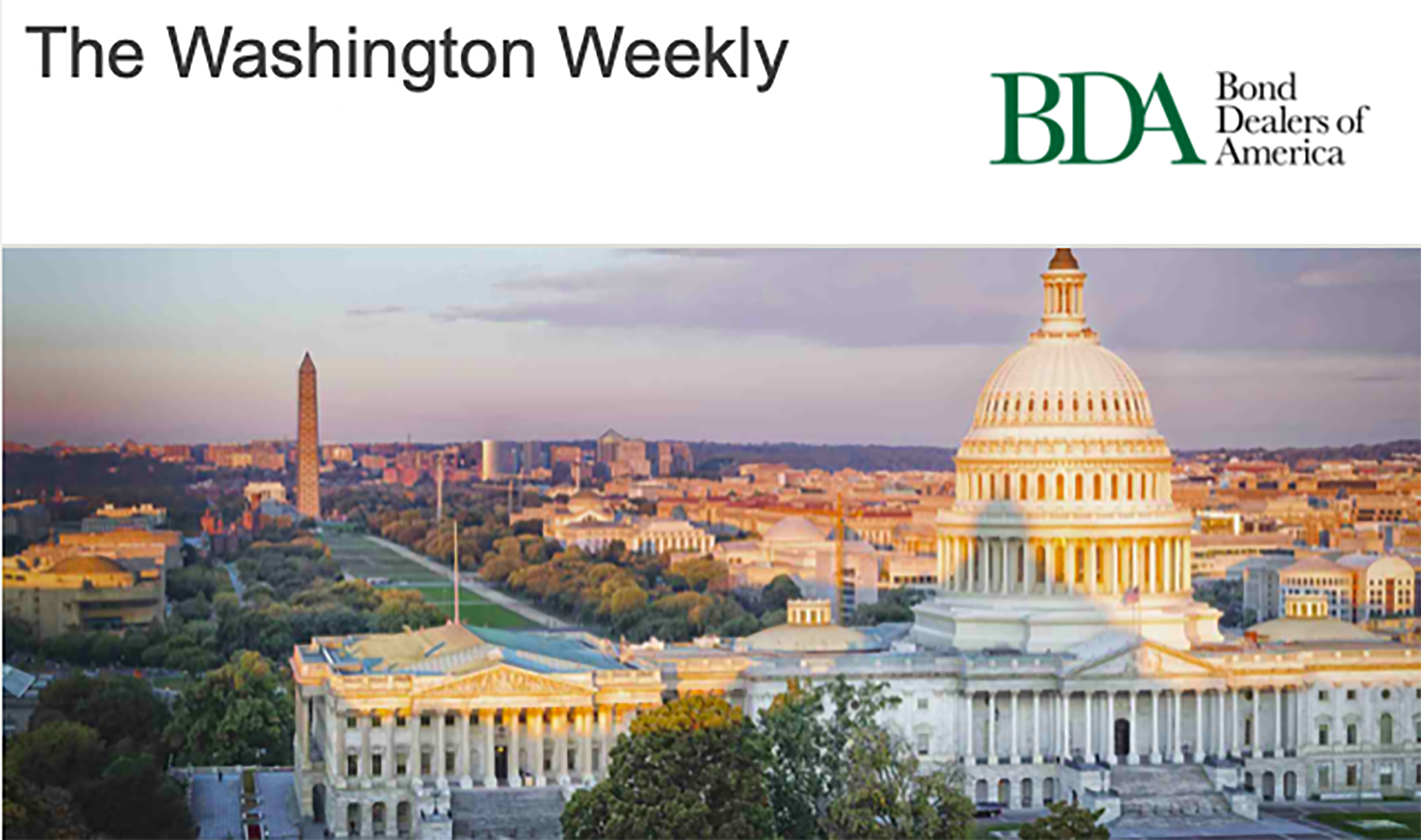
For the past few weeks, it appeared that Congress was headed towards a government shutdown, in the middle of a pandemic, less than 6 weeks to a presidential election, with no deal in sight. This week, cooler heads prevailed, and disaster has been adverted-for now.
House Leadership, along with Trump Administration officials struck a short term deal mid-week and fast tracked the legislation through the House with a strong bipartisan vote. The bill is expected to pass the Senate next week. Attached to the package is a years-long extension to the Surface Transportation reauthorization that does not include municipal bond provisions.
Not to be forgotten is the death of Supreme Court Justice Ruth Bader Ginsburg, which will have direct impact on the Senate schedule, dampening the hopes of additional stimulus and aid to state and local governments. Though House Speaker Pelosi is attempting to revive talks with a narrow compromise bill, a long shot effort to pass legislation prior to the election.
This week, the BDA kicked off its new podcast series titled Bonding Time with an episode focused on muni happenings in Washington, DC. The podcast features Emily Brock of the GFOA Federal Liaison Center and the discussion focuses on issues such as stimulus, infrastructure and politics.
**The inaugural Bonding Time podcast can be found here**
Legislative Recap:
Congress Avoids Shutdown – Muni Provisions Sidelined
In the midst of a national health and economic crisis, Congress appeared poised to add gasoline to the fire by allowing government funding to lapse. This appears to have been avoided, at least in the near term, but in doing so Congress has dashed any hope that BDA priorities such as the restoration of advance refundings, expansion of PABs, or the raising of the BQ debt limit will happen in 2020.
As part of the negotiations, both House, Senate and administration officials agreed to extend the Surface Transportation Reauthorization through FY 2021 at current levels. This means that the House legislation that included many municipal market priorities are tabled likely through the remainder of 2020. There is still an outside chance for negotiations for a new stimulus deal, especially post elections in the lame duck session. However, at this time it is hard to see both Chambers and the White House coming together for a deal robust enough to include municipal bond provisions.
While a disappointing outcome, this is not an unexpected maneuver. The BDA continues to advocate for these provisions, along with our partners in the Public Finance Network, and believe that they are well positioned for consideration in 2021 regardless of outcome of the elections.
Dems Press Fed Chair to Expand MLF
In a marathon week of Congressional testimony for the Federal Reserve Chairman Jay Powell, the House Financial Services Committee pressed the Chair to expand the Municipal Liquidity Facility, noting that interest rates are still too high resulting little assistance to state and local governments with only two issuers accessing the program.
The Chair defended the program by stating, ” What that facility has accomplished is it opened up the private market so state and local governments are borrowing in record amounts at record low yields,” avoiding the calls to lower the pricing of the securities.
This point of view was reiterated last week during a CARES Act oversight hearing in which Senator Pat Toomey (R-PA) called for the ending of the program with his rationale being that if only two issuers have used the program and the market is stabilized, thus it is unneeded.
The House also passed legislation this week that would require the Federal Reserve and the Treasury Department to expand the number of credit rating firms allowed to participate in Covid-19 financial market support programs.
The bill would intervene in the Fed and Treasury’s bond-buying programs by forcing them to accept securities rated by any credit rating agency recognized by the SEC.
Since summer hearings on the issue, a bipartisan group of House lawmakers has continued to press the Fed and Treasury to expand the list of rating agencies beyond the three dominant ratings firms — Standard & Poor’s, Moody’s and Fitch. Under the bill, the Treasury and Fed would be able to exclude certain ratings if they’re deemed unreliable or inaccurate for a particular asset class.
Fed Recap:
Fed Chair Calls on Congress to Provide Relief
Chairman Powell this week continued to urge Congress to take further actions to support the stalling U.S. Economy. While noting the CARES Act helped to vastly improve the national economic situation, he noted that the path ahead is uncertain as monies allotted in the legislation expires.
Powell has long been in favor of additional aide to state and local governments and further reiterated that position on the Hill this week. The Chairman also continue to praise Fed lending programs such as the Main Street Lending program and the MLF stating they help unlock liquidity and assisted the U.S economy in reversing the March loses.
